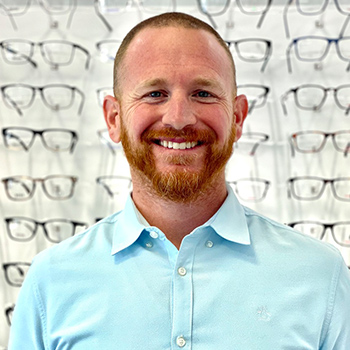A glasses prescription isn’t meant to last forever. In fact, most prescriptions are only valid for about a year. Regular check-ups are essential to ensure you’re seeing as clearly and comfortably as possible.
Eyes can change gradually, and vision may shift, even if you don’t notice it immediately. To keep your eyes healthy and your vision sharp, eye doctors generally recommend updating your prescription every one to two years.
Getting the Proper Prescription for Your Vision
An up-to-date prescription is key to seeing clearly and preventing eye strain and headaches. That’s because your vision needs can change due to factors like aging, lifestyle, or even daily screen time.
Regular eye exams ensure that your prescription matches your current needs, so you’re not squinting through lenses that aren’t optimized for you. Even minor adjustments can make a big difference in the comfort and clarity of your vision.
Remember, seeing clearly isn’t just about sharpness—it’s also about avoiding strain and optimizing comfort.
Do Frames Affect Your Prescription?
Frames don’t directly change your prescription, but the right fit can make a big difference in your vision comfort. An ill-fitting frame can cause your lenses to be misaligned with your line of sight, affecting how well you see and possibly leading to discomfort. It’s always a good idea to check that your frames sit properly so your lenses work as intended and provide optimal vision support.
Regular Eye Exams Are Key to Clarity & Comfort
Annual eye exams aren’t just for updating prescriptions—they’re crucial for overall eye health. Your eye doctor checks for more than vision changes; they can spot signs of eye conditions like glaucoma, cataracts, and macular degeneration, which often don’t show symptoms in their early stages.
Eye exams can also reveal health issues like diabetes and high blood pressure. Many conditions can be managed effectively if caught early, making routine eye care a proactive part of your health. Maintaining an up-to-date prescription helps prevent unnecessary strain and optimizes your vision for daily challenges, whether that means prolonged screen use, night driving, or reading fine print.
By visiting your optometrist regularly, you can help keep your vision—and eye health—in good shape.
Signs Your Prescription Is Outdated
If you’re experiencing any of these symptoms, it may be time to update your prescription:
- Frequent headaches: Often a sign of eye strain, especially after screen time.
- Squinting: Squinting to read or focus on objects.
- Blurry vision: Struggling to see things at a distance or up close.
- Eye fatigue: Eyes tired or heavy, especially by day’s end.
- Double vision: Seeing double can indicate misalignment or a vision change.
Is a Glasses Prescription the Same for Contact Lenses?

While glasses and contact lens prescriptions are both designed to correct vision, they’re not identical. Glasses sit about 12 millimetres from your eyes, while contacts rest directly on your cornea, so adjustments are made to contact lens prescriptions to account for this difference. Contact lens prescriptions also include additional details—such as lens diameter and base curve—to ensure a proper fit on your eyes.
Getting a contact lens prescription is needed to switch from glasses to contacts, as an improper fit can lead to discomfort and even eye health issues. If you’re interested in contacts, an eye doctor will take precise measurements of your eyes and help you find the right contacts for clarity and comfort, ensuring your lenses support your vision correctly and protect your eye health.
Is Laser Eye Surgery an Option?
For many people, laser eye surgery can correct their vision and reduce or eliminate the need for glasses or contacts. Procedures like LASIK and PRK reshape the cornea, allowing light to focus more accurately on the retina. While these surgeries can be effective, they may only suit some. Factors like eye health, age, and even vision stability can determine if laser eye surgery is safe and beneficial.
Laser eye surgery has significantly improved, with high success rates and short recovery times. However, it’s essential to consult an experienced eye surgeon who can assess whether it fits your vision needs and lifestyle well. Though many people experience long-term improvements, there’s always a small risk of side effects like dry eyes or halos around lights, which should be considered before surgery.
If you’re considering laser eye surgery, speak with your optometrist first. They can guide you through the pros and cons and, if needed, refer you to a trusted specialist. This way, you’re well-informed and prepared to choose to align with your vision goals and overall eye health.
Time to See Your Eye Doctor
Don’t wait to update your prescription or address eye discomfort. Scheduling an eye exam with Dr. Bittel Optometry ensures you see clearly while keeping your eyes healthy. Book your appointment today to keep your vision clear and your eyes comfortable!


